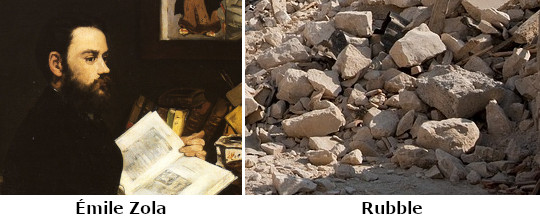Émile Zola? Apocryphal?

Question for Quote Investigator: The prominent French novelist and journalist Émile Zola has been credited with an inflammatory anti-clerical statement. Here are three versions in English:
- Civilization will thrive only when the last stone, from the last church has fallen on the last priest.
- Civilization will not attain perfection, until the last stone from the last church falls on the last priest.
- Humanity will not fulfill its true potential until the last stone from the last church falls on the last preacher.
Would you please explore the provenance of this remark?
Reply from Quote Investigator: Émile Zola’s 1901 novel “Travail” contains a scene during which the last church collapses on top of the last abbot. Here is a rendering of the dramatic event in English. Emphasis added to excerpts by QI:1
The roof cracked open with a sound like thunder. The steeple shook, and then fell, laying the nave open to the sky, and pulling down with it the disjointed walls. Nothing remained under the bright sun but an enormous pile of stones and débris, beneath which they never found the mangled body of Abbé Marle, who seemed to have been crushed to dust under the ruins of the altar. Nor did they ever find any fragments of the great painted and gilded wooden crucifix, which also had been ground to powder. A religion had been killed along with the last priest, celebrating his last mass in the last church.
QI has not yet found solid evidence that Zola crafted the expression under analysis. Perhaps someone who read “Travail” constructed the statement to represent the attitude depicted within the novel. Next, the words were directly reassigned to Zola. This two-step process provides an admittedly speculative explanation for the existence of the quotation.
Émile Zola died in 1902. The first strong match for the quotation located by QI occurred in the 1930 citation listed further below.
Here are additional selected citations in chronological order.
Continue reading “Quote Origin: Civilization Will Not Attain To Its Perfection, Until the Last Stone from the Last Church Falls on the Last Priest”